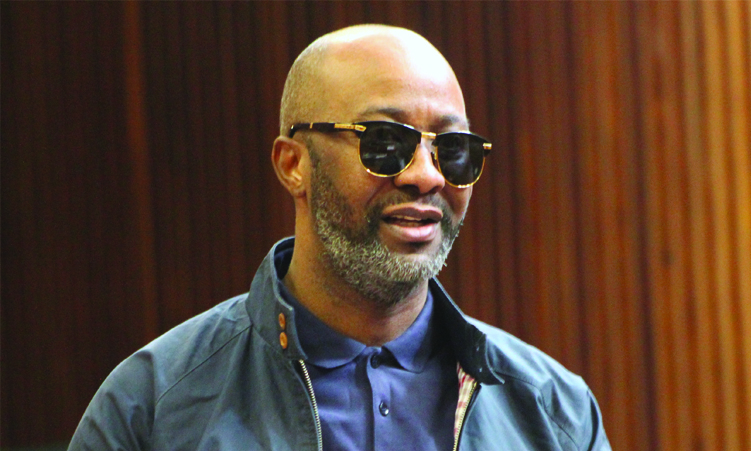One of the men facing charges in the Fishrot fishing quotas fraud, corruption and racketeering case, Tamson ‘Fitty’ Hatuikulipi, denied in the Windhoek High Court yesterday that he had been involved in the plundering of the national resources of Namibia.
“If there was any plundering of resources, I was never part of it,” Hatuikulipi told judge David Munsu during a bail hearing that started on Wednesday.
Hatuikulipi (43), who is a son-in-law of former fisheries and marine resources minister Bernhard Esau, said he entered the Namibian fishing industry based on legitimate business agreements with the Icelandic fishing company group Samherji.
“I was doing business with Samherji, and that business was completely legal,” he said.
Hatuikulipi repeated that he did consultancy and marketing work for the Samherji group by linking it with Namibian fishing right holders, negotiating joint venture agreements and finding buyers for the fish that Samherji companies caught in Namibian waters.
During his testimony, Hatuikulipi recited numerous email messages between himself and Samherji executives, including the Fishrot scandal whistleblower Jóhannes Stefànsson.
Those messages, which included updates about Samherji companies’ fishing operations in Namibia, disproved Stefànsson’s allegation that consultancy agreements between him and Samherji were “dummy agreements” to cover up the payment of bribes by the companies to get access to Namibian fishing quotas, Hatuikulipi said.
Stefànsson kept him informed about Samherji companies’ operations in Namibia based on his consultancy agreements with the group, he also said. The updates he received from Samherji executives would not have been sent to someone with a “dummy agreement” with the Samherji group, he added.
Hatuikulipi said evidence disclosed to him by the state in June last year included agreements for the supply of fish by Samherji companies to a company in Zambia and the government of the Democratic Republic of Congo.
Those agreements show that he indeed marketed fish for the Samherji group, he said.
In some email messages Hatuikulipi dealt with in his testimony, he was advised that invoices for “consultancy fees” he had sent to Samherji companies should be changed, to indicate that he was invoicing the companies for “sales deal commission”.
Those invoices that were supposed to be changed were dated March 2019, for an amount of N$3,62 million, April 2019, again for N$3,62 million and May 2019, for N$575 000. The invoices were for the payment of commission to him for the sale of fish caught by Samherji companies, he said.
Hatuikulipi told the judge that in a ruling on his first application to be granted bail, a Windhoek magistrate made a finding that he had been involved in the plundering of a national resource and that it was not in the public interest to grant him bail.
He was not involved in the plundering of resources, and also did not play any role in the allocation of Namibian fishing quotas, he said.
Hatuikulipi, whose previous two applications to be granted bail were both turned down, is due to continue with his testimony today. He has been held in custody since his arrest near the end of November 2019.
Stay informed with The Namibian – your source for credible journalism. Get in-depth reporting and opinions for
only N$85 a month. Invest in journalism, invest in democracy –
Subscribe Now!







